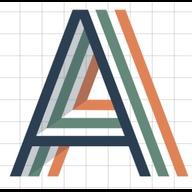Inside the Competitive Higher Education Student CRM Systems Market

The digital transformation of the university campus has created a dynamic and highly competitive software industry. The Higher Education Student CRM Systems Market is a vibrant ecosystem of companies, from global enterprise software giants to specialized, education-focused vendors, all competing to become the preferred technology partner for colleges and universities. The market is experiencing a period of strong and sustained expansion, with its valuation projected to grow to $13.7 billion by 2032, driven by a powerful 11.84% compound annual growth rate (CAGR) between 2024 and 2032. This competitive environment is forcing vendors to innovate rapidly, offering more sophisticated, user-friendly, and integrated solutions to meet the complex and evolving needs of modern academic institutions as they seek to attract and retain the best and brightest students.
The competitive landscape is characterized by the presence of several distinct types of players. On one side are the large, horizontal CRM behemoths like Salesforce and Microsoft. Salesforce, with its Education Cloud, has become a dominant force in the market, leveraging the power and flexibility of its core platform and a vast ecosystem of implementation partners to offer a highly customizable solution. Microsoft, with its Dynamics 365 platform, is another major competitor, appealing to institutions that are already heavily invested in the Microsoft ecosystem. On the other side are the traditional higher education technology giants, such as Anthology (formerly Campus Management, Campus Labs, and iModules), Ellucian, and Jenzabar. These companies have deep, long-standing relationships with thousands of institutions and offer CRM capabilities that are tightly integrated with their core Student Information Systems (SIS).
A third and increasingly influential category is the group of specialized, "best-of-breed" vendors who focus on solving a specific part of the student lifecycle with exceptional depth. Slate, by Technolutions, is a prime example, having achieved a dominant position in the undergraduate admissions space with its powerful and highly configurable recruitment and application management platform. Similarly, other niche vendors specialize in areas like student success and retention, or alumni relations and fundraising. These specialized solutions often offer more advanced, purpose-built functionality than the more generalized platforms. This creates a complex decision for institutions: whether to opt for a single, unified platform from a major vendor or to pursue a "best-of-breed" strategy, integrating multiple specialized solutions to meet their specific needs.
The competition in this market is now being fought on several key fronts beyond just core features. The ease of integration with other campus systems, particularly the Student Information System (SIS), is a critical factor. A seamless flow of data between the CRM and the SIS is essential for creating a truly unified student record. The quality of the user experience is also a major differentiator; platforms that are intuitive and easy to use for non-technical staff, such as admissions counselors and academic advisors, are more likely to be successfully adopted. Furthermore, the ability of a platform to provide powerful and accessible analytics is becoming a key competitive advantage. Institutions are looking for systems that can not only store data but also provide actionable insights that can be used to improve recruitment strategies and student outcomes.
Explore Our Latest Trending Reports:
Carrier Aggregation Solution Market
- Art
- Causes
- Crafts
- Dance
- Drinks
- Film
- Fitness
- Food
- Jogos
- Gardening
- Health
- Início
- Literature
- Music
- Networking
- Outro
- Party
- Religion
- Shopping
- Sports
- Theater
- Wellness



